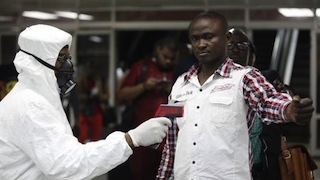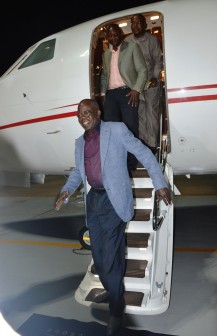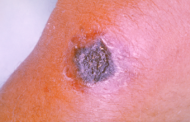With some 76,000 Nigerian Muslims expected this year at the hajj in Saudi Arabia, organisation was always going to be a major logistical undertaking.
But after more than 2,600 deaths from Ebola in West Africa this year, including eight in Nigeria, the authorities have had to put in extra security measures to allay fears about its possible spread outside the region.
Nigeria is the only country of the five in the region affected by the mass outbreak of haemorrhagic fever that has been given permission to send its pilgrims to Mecca for the world’s largest gathering of Muslims.
At the hajj cargo terminal at Murtala Mohammed International Airport in Lagos and at other departure points across the country, that means a three-tier health screening check before they are even allowed to board the plane.
On Thursday, five busloads of pilgrims from Oyo state in southwest Nigeria arrived at the terminal, all dressed in the same yellow and beige patterned cloth for easy identification in the Muslim holy city.
The men, in “buba and sokoto” — traditional long robe and trousers — formed one queue while the women, their heads covered by the hijab in the same pattern, lined up separately.
Shopping bags carried on heads were put down as workers from the Ports Health Authority used contactless thermometers to check the travellers’ temperatures; fever is one symptom of the virus.
Just one woman was taken aside for secondary screening but later allowed to proceed.
Another queue formed at a water tank at the compound entrance gates. A helpful official squirted soap from a bottle.
One pilgrim, Afolabi Inabo, said she was sure the measures would work.
“Ebola cannot spread because we have sanitisers, we wash our hands, we have soap, we have masks, we have (latex) gloves,” she told AFP.
Some 35,000 pilgrims nationwide have already undergone the same procedure, while both the state and federal governments in Nigeria have carried out health checks even before the pilgrims get on the bus.














